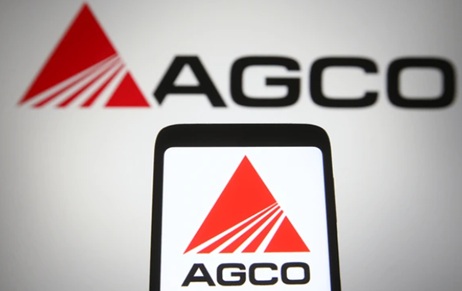Biotechnology is one of the High-Tech industry with innovation and progress in the field of…
Understanding Intellectual Property Rights and Compliance in Open Source Software
The functions that software technology supports have seen significant change over time. The creation of such software has greatly helped users, both private persons and corporate entities, as it has addressed the majority of their everyday requirements and usage. It is well acknowledged, although, that the majority of these users hardly ever read the click-wrap agreements before installing the programmes, putting them at risk and requiring them to comply with several regulations. In general, corporates must exercise extra caution when taking on any kind of risk in order to comply with the relevant laws. Software firms devote a great deal of time and energy in developing the required software and in perfecting User Licence Agreements and other licencing needs.
Proprietary or closed-source software is what we were talking about in this instance. During a period when technology experts were protective of the licence or intellectual property rights of their creations, some experts felt that releasing the source code of any software would allow other experts to work on and learn from it, increasing the software’s quality, scope, and usability. As a result, the idea of “open source software,” or “OSS,” was created, with copyleft licencing being used in place of a copyright licence.
Initially, the idea appeared bold and forward-thinking, given that this would really help the eager software engineers. But the question still stands: Do software’s intellectual property rights totally evaporate? We will talk about some of the IP concerns surrounding open-source software in this article, along with the compliance concerns related to IP rights protection.
Why Users Choose Oss?
The reasons for open source software selection can differ greatly throughout individuals and organisations. End consumers frequently have no idea what open source software is installed on their PCs or mobile devices. Additionally, it is typical for end customers to obtain free apps for Android or Mozilla Firefox. These users don’t even intend to look at the source code; they just want the software to work. Conversely, a business may decide in favour of open source software over a proprietary substitute due to its low (or free) cost, the ability to modify the source code, or the presence of a sizable community that supports the programme. Programmers, whether experts or novices, may contribute their testing and development expertise to an open-source project in order to build their network and improve their reputation. In order to maintain the vitality of open source software development and assist ensure high-quality products, it is becoming typical for businesses to contribute paid staff to open source projects.
OSS V IPR
The availability of the “source code” is the main distinction between proprietary software and open source software (OSS). The directives or programming language produced by a software programmer that outline the tasks that the computer must complete is contained in this source code. According to copyright laws, the author or the computer programmer who created the source code is the rightful owner of the copyright for such material. Moreover, the majority of software is proprietary because it is distributed without the source code. This programme is supplied in an executable file format, which guarantees programme functionality while keeping the program’s source code private. Users, other programmers, and system administrators are unable to alter, duplicate, or redistribute the proprietary software in its original form since it lacks the source code. OSS was a copyleft project that let programmers or users to use the source code to enhance and change the current software, and perhaps distribute it again under their own conditions. The concept behind this kind of effort was that open source code should be made available to the public so that other programmers might develop or alter it, thus increasing software quality.
IP Issues Related To IPR
The author of the creation is traditionally granted the copyright, as specified by copyright law. There is no requirement to formally register the work under copyright rules. Nonetheless, authors who properly register their works and then include the required copyright notice on their works undoubtedly benefit from some benefits when it comes to legal enforcement. When purchasing software under a proprietary licence, the buyer just receives a licence to use the programme; no rights, titles, or interests are transferred in any way. The End User Licence Agreement (EULA) governs the licence for such software. Additionally, the user is not permitted to sell or redistribute this software to any other third parties under the terms of this licence. Copyright and any associated intellectual property (IP) are retained by the organisation or individual that created the software. When software is released under an open source licence (OSS), the creator’s copyright is either completely waived or very limited.
[Image Sources: Shuterstock]

OSS licences have been involved in copyright infringement cases throughout the years in a number of jurisdictions. Cisco was found to have been using source codes based on Open Source Software Licences issued by the Free Software Foundation in one of the cases, Cisco v. Free Software Foundation, without adhering to any terms and conditions. As a result, Cisco was sued by the Free Software Foundation for intellectual property violation. The United States District Court for the Southern District of New York made a decision that required Cisco to make a portion of its proprietary code available to the public domain, monitor adherence to free software licence agreements, and advise its clients of their rights under the GPL Licence. Additionally, Cisco was required to make specific monetary donations to the Free Software Foundation. It is imperative that every corporate entity or individual who intends to use, alter, or distribute any open source product carefully reviews and complies with any applicable licence requirements. One of the most important requirements under any OSS Licence term is to provide the source code and to include specific copyright notices.
In certain situations, it may also be necessary to add notices detailing the changes made to the code. If the entities want to include the OSS Components in the proprietary software, the level of compliance complexity increases. In this case, it becomes crucial to consider not just how many licence requirements must be followed, but also the final nature of the licence or product. This frequently results in allegations of third-party infringement as well, even though the current owner may have released the work under an open-source licence. The third party, however, can claim that the software eventually violates some intellectual property. Since the software is now open-source, this causes even more tensions between the IP owner and the people distributing it to the general public. In addition to attracting bad press and other detrimental repercussions on a corporation’s reputation, noncompliance with the OSS exposes the original licensors to legal action. As a result, difficulties arising from the use of OSS must be managed extremely carefully.
Conclusion
Many writers have criticised intellectual property law, arguing that it is a negative right that, while promoting commercial exploitation for its creators, also places limitations on the work of numerous other inventors. As a result, innovation moves more slowly since other market participants are deterred from conducting research in the same field. Users or entities wishing to integrate open source software (OSS) into their system to create custom software for industry use or internal use should make sure to review the licence terms for these products to understand how IP rights are affected and how they affect the ability to enforce or protect copyright over the software. Since the last thing any entity would want is to be involved in legal proceedings for copyright infringement or, worse, to have to pay damages for such infringements along with having the software licence revoked, such entities must also make sure and audit that the necessary notices, source code availability, and any other obligations are being maintained.
Author: Shruti Sinha, in case of any queries please contact/write back to us via email to chhavi@khuranaandkhurana.com or at IIPRD.



